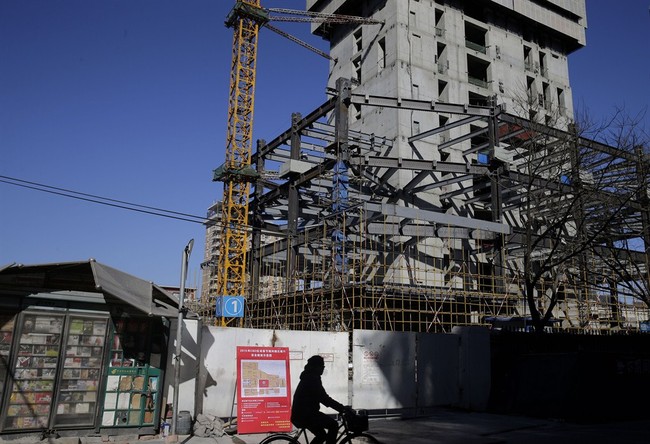
First it was Evergrande, then it was Country Garden, now China’s #2 property developer by sales volume is in trouble. On Monday, Vanke’s was downgraded to junk status by Moody’s.
Moody’s said on Monday it withdrew Vanke’s ‘Baa3’ rating which is the lowest of Moody’s investment grade ratings, and assigned ‘Ba1’ corporate family rating (CFR). It also said all of Vanke’s ratings would be on “review for downgrade”.
Vanke is one of the few remaining Chinese developers with investment-grade ratings. If another major rating agency such as S&P or Fitch follows suit, Vanke’s dollar bonds would face the prospect of being dumped out of some of the world’s most important investment indexes.
In a statement to Reuters, Vanke said the “company’s current operation and refinancing are normal and financing channels are stable”. It also said the impact of a ratings downgrade on its financing activities was “controllable”.
Controllable in this case seems to mean on the verge of default. However, Vanke has an advantage that other Chinese developers did not have. It’s partly government owned. And that means that the government is getting involved in trying to rescue it.
China Vanke Co. is in talks with banks on a debt swap that would help the cash-strapped developer stave off its first-ever bond default, according to people familiar with the matter…
The talks, coordinated by China’s financial regulators and the local government of Shenzhen, are ongoing and the plan is subject to change, the people said. Vanke didn’t respond to requests for comment. The Shenzhen government, which owns a stake in Vanke, and the National Administration of Financial Regulation didn’t respond…
Even after the rally, investors have significant doubts about Vanke’s financial health. The developer’s longer-dated dollar bonds are trading at distressed levels below 47 cents on the dollar, suggesting a high chance of default amid depressed property sales and a wobbly Chinese economy.
China’s financial regulators are stepping in because another large default would send a signal about China’s economy that the government doesn’t want sent, i.e. it may not have hit bottom yet.
“I think, at the moment, there’s an assumption in the market that the levels of activity have come down so much that things can’t get much worse, but that’s not really true,” Charlene Chu, a senior analyst at Autonomous Research, told Bloomberg TV on Monday.
Chu — who issued warnings about China’s debt more than a decade ago — said China was still “very much in the middle of a collapse in the property sector, and this could still get uglier than it already is.”…
…any default from the company would undermine confidence in state-owned developers, Chu said.
“I think that could really lead to a loss of confidence in almost every developer in the country if state-owned entities aren’t safe,” she told Bloomberg.
Finally, the Office of the Director of National Intelligence just released its assessment of China’s economy and it was not very upbeat.
“During the next few years, China’s economy will slow because of structural barriers and Beijing’s unwillingness to take aggressive stimulus measures to boost economic growth,” read the Office of the Director of National Intelligence’s (ODNI) annual worldwide threat report released Monday…
…malaise has set in and is set to deepen, the report said, citing China’s aging workforce and cratered investor and consumer confidence on the back of Xi’s top-down policies.
China’s economy is going to be facing a difficult transition as its population begins to shrink dramatically. So far, Xi Jinping’s propaganda efforts haven’t made a dent in these underlying problems.










